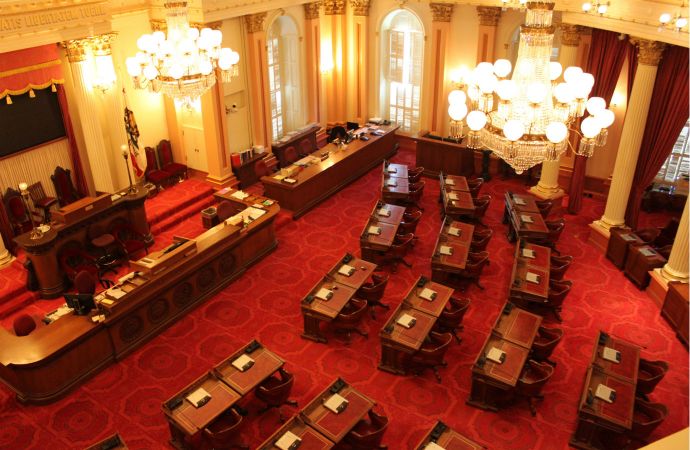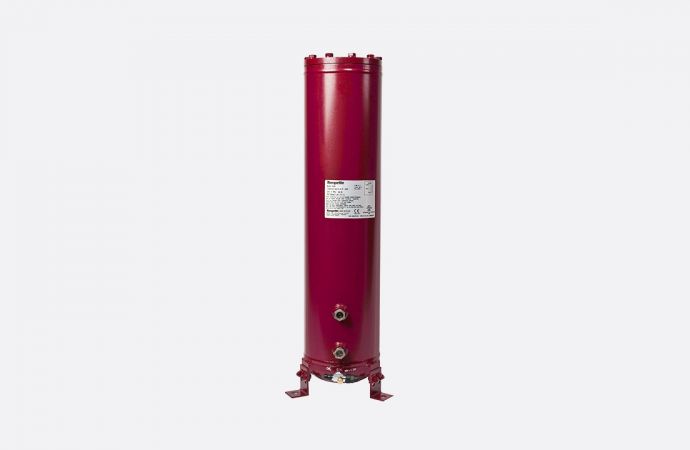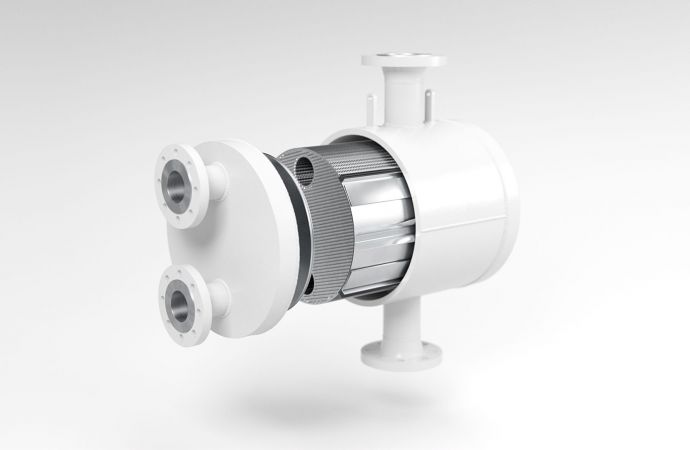Senator Lara’s California Cooling Act includes incentives for businesses and residents to switch to low-polluting air conditioning and refrigeration.

California State Senate
Yesterday at the 23rd UN Climate Change Conference (COP23) in Bonn, Germany, California Sen. Ricardo Lara (D-Bell Gardens) proposed legislation – the California Cooling Act – to reduce HFCs, considered to be the fastest growing source of greenhouse emissions in California and around the world.
HFCs “disproportionately contribute to global warming and the type of extreme weather events that California has been experiencing in recent months,” said an announcement issued by Lara. “Reducing these emissions will have a significant impact in the fight against climate change.” Under the Kigali Amendment to the Montreal Protocol, a global HFC phase-down is designed to avoid 0.5ºC of warming by 2100.
“The super pollutants inside air conditioners and refrigeration are like a silent assassin that threatens our global climate and California is sounding the alarm about the threat they pose,” said Lara. “The California Cooling Act will help businesses and residents leave behind HFCs and support American manufacturers who are leading the way toward safer chemicals that do not contribute to global warming.”
The California Cooling Act will maintain the momentum around reducing HFCs, including incentives for businesses and residents to switch to low-polluting air conditioning and refrigeration. The legislation will be introduced in 2018.
Lara’s announcement follows a public workshop held by the California Air Resources Board (CARB) on October 24 as the first step towards adopting the Environmental Protection Agency (EPA) Significant New Alternatives Policy (SNAP) rules on HFC regulation. A draft of the regulation CARB is proposing for adoption of the EPA SNAP rules is available here.
Senator Lara authored the Super Pollutant Reduction Act of 2016, which pledged California to reduce HFCs by 40% below 2013 levels by 2030. Senator Lara and Governor Jerry Brown accepted the first ever Climate and Clean Air Award from the Climate and Clean Air Coalition (CCAC) at the UN Climate Change Conference on Nov. 12 for taking bold action on HFCs and other pollutants.
The super pollutants inside air conditioners and refrigeration are like a silent assassin that threatens our global climate."
– California Senator Ricardo Lara
“HFCs are America’s fastest growing source of greenhouse gas emissions, and there are natural refrigerant-based technologies available today – in residential, commercial and industrial applications – to replace them,” said Marc Chasserot, CEO of shecco, a global market accelerator for natural refrigerants (and publisher of this website). “An ambitious California bill, with clear targets, deadlines and incentives, will accelerate the adoption of these solutions – creating green jobs and helping America deliver on its pledges to the Montreal Protocol and the Paris Agreement.”
"Replacing HFCs with alternative technologies is one of the best opportunities we have today to simultaneously address climate change and sustainable development,” said Helena Molin Valdes, head of CCAC Secretariat. “This bill will help speed the transition away from these unnecessary and environmentally-damaging refrigerants while creating new opportunities for job creation and growth.”
“Senator Lara’s bill to curb the super heat-trapping HFCs is a big step for climate protection,” said David Doniger, Director of the Climate and Clear Air Program for the Natural Resources Defense Council (NRDC). “California can lead the way in these days of darkness from Washington.”
The Obama Administration clamped down on HFCs in 2015, but the Court of Appeals for the District of Columbia overturned the rule after two foreign makers of HFCs sued. While the Trump Administration has not responded to the ruling, the NRDC and U.S> chemical companies Honeywell and asked the court to rehear the case.
American companies say they have invested more than $1 billion to replace HFCs.
“If the Trump Administration refuses to defend the HFC rule, it is siding with foreign companies against the interest of Americans and American businesses,” said Lara. “In the absence of federal action, California needs to step in to ensure we protect consumers and businesses and meet the goals in the Super Pollutant Reduction Act.”
Related stories




